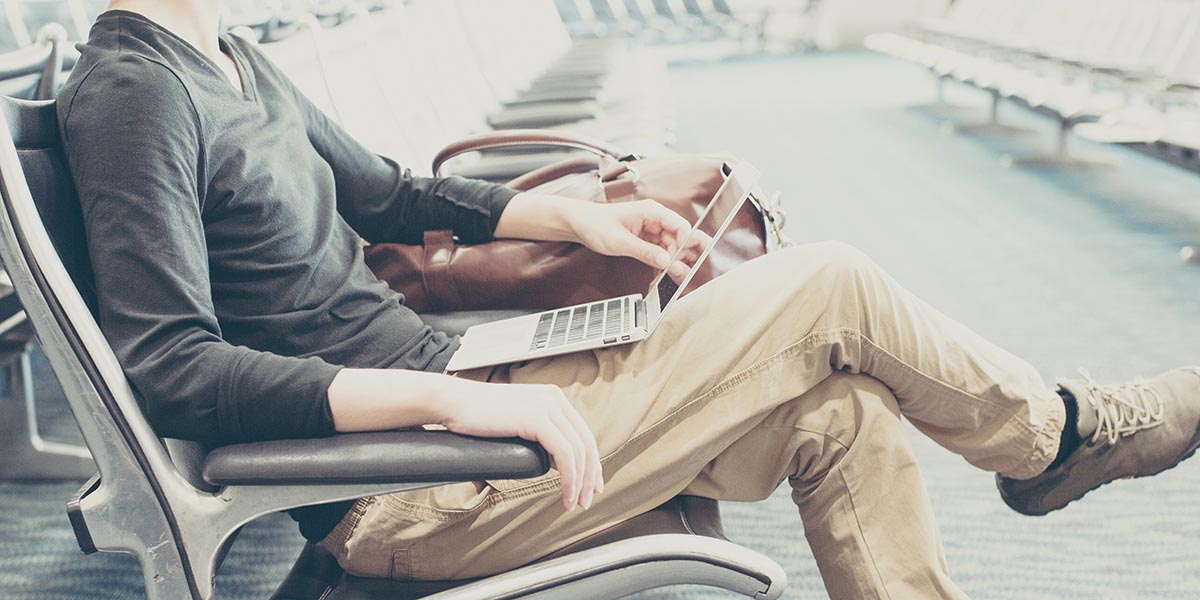Living in Hong Kong, we've seen our fair share of economic ups and downs. One thing that's always been a constant is the relentless march of inflation, the silent thief that gradually eats away at the value of our money. It's frustrating.
Three health risks of business travel
health risks of business travel: deep vein thrombosis, poor sleep and unhealthy eating.

Learn about the potential health risks associated with travelling for business that you might not know about … and how to avoid them.
1. Deep vein thrombosis
Frequently taking flights longer than 6 hours may pose a health risk. Those longer flights increase your risk of deep vein thrombosis, a condition that develops when blood clots form in your veins — usually the veins in your legs – due to extended inactivity. If a piece of the clot breaks off, it can travel to your lungs, potentially blocking blood flow and causing a life-threatening pulmonary embolism.
The best way to lower your risk is to get moving, “Walk around during your flight,” he says. “Or do leg exercises in your seat.” Flex your feet then point your toes, holding each position for a few seconds, and lean forward in your seat to stretch your hamstrings.
Wearing cotton compression socks or stockings during your flight can also help lower your risk, explains Keystone.
2. Poor sleep
Jet lag, shifting work schedules and sleeping in an unfamiliar bed and hotel room can sabotage your sleep. Prescription sleep aids like zolpidem might help, but they have drawbacks. “Zolpidem can affect your memory,” says Keystone.
If you’re headed to a destination three or more time zones east of home, try adjusting your sleep schedule to your destination’s time zone a few days before your trip, recommends Keystone, and sleep on the local schedule as soon as you arrive. Take a stroll in the sun between meetings to help reset your internal clock. And if you’re still struggling, talk to your doctor about supplements, like melatonin, that may help.
3. Unhealthy eating
Even if you’re generally a healthy eater at home, your good habits might falter on business trips. When you’re travelling, the readily available food choices tend to be less healthy. You’re eating out more, exposing you to larger portions.
Keep your health on track by making a proactive nutrition plan, says a dietitian. Ask for a half-portion or set aside some of your entree at a restaurants, and request that higher-calorie ingredients — like the dressing, nuts and cheese on your salad — be served on the side. Decide in advance if you plan to drink, knowing that alcohol adds empty calories. If you do opt to drink alcohol, stay within the safe intake guidelines of no more than 1 drink daily for women and no more than 2 drinks daily for men, she recommends.
Sylvie Tremblay, April 28, 2017, 4 health risks of business travel [Web page]. Retrieved from Canada Sun Life Corporate Website read the article.
Information provided above is for reference only, please refer to the Conditions of Use of this site.

PH4%20-%203%20Money%20Strategies%20To%20Be%20Inflation%20Proof-1%20(1).jpg)
MY7%20-%20How%20To%20Be%20Happy%20In%20Difficult%20Times%205%20More%20Habits%20To%20Practice-1.jpg)

